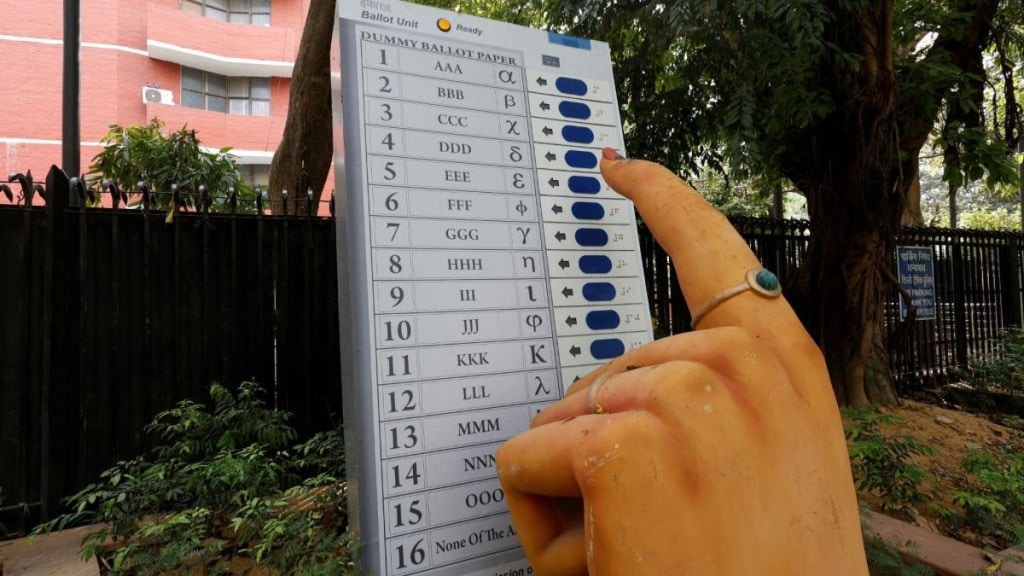Voting for the 18th Lok Sabha will end on June 1. Chatters, murmurs, discussions and dialogues around the upcoming exit polls can already be heard. Several political research agencies and TV news channels are already geared up to bring the ‘most accurate’ predictions on vote shares, seats, parties, and candidates. Here is a look at the phenomenon of exit polls in various democracies.
India
Exit polls in India go back to 1957 when the Indian Institute of Public Opinion conducted a poll during the second Lok Sabha elections. It was in 1996 that satellite TV made exit polls popular when the state-owned broadcaster Doordarshan asked the Centre for the Study of Developing Societies to conduct nationwide exit polls. Exit polls are conducted immediately after voting ends. The manner of conducting exit polls in the country is varied, its accuracy depends on factors like structured questionnaires, in-person or telephonic interviews of random people for fairness, sample size, demographic representation, data compilation, and count method.
In India, exit polls are bound by several rules such as Section 126A of the Representation of the People Act, 1951 which says that no person is allowed to conduct any exit poll and publish or publicise the results by print and electronic media or in any other manner while voting is undergoing. Under this Act, the Election Commission of India can place a ban in the intervening period that starts from the beginning of the hours fixed for poll on the first day till 30 minutes after the closing of polls on the last day in all the phases. This is done to ensure it doesn’t influence voting at places where it is yet to be done.
As popular as they are, criticism abounds the exit polls as well. Critics argue that it is increasingly becoming estimate polls predicting seats instead of real exit polls as many show only the number of seats and not vote share or methodological details. There is also criticism of unreliability, unfairness, bias, fake interviews or polls, improper sample size or data collection, dishonest answers, and being sponsored or politically motivated. The other methods of gauging public opinion in India are opinion polls and approval ratings.
United States
In the US, a consortium of American news organisations like ABC, CBS, NBC, and CNN called the National Election Pool (NEP) conducts the only national exit polls in partnership with Edison Research. They make projections for midterm, presidential primary, and presidential elections in the country. Their method includes election day exit polls at voting locations, in-person exit polls at early voting locations, multi-mode (phone and web), surveys of by-mail voters, and probability-based sampling. Other exit polls are conducted by the Associated Press, Fox News Voter Analysis (Fox News and the AP), NORC, and AP VoteCast, among others. Gallup is renowned for its comprehensive opinion polls on various issues, presidential job approval rating, and other political leaders’ ratings. Pew Research Center is known for its in-depth opinion polls on social, political, and economic issues in the US. Daily tracking of the president’s approval rating conducted by Rasmussen Reports is also quite popular.
France
In France, exit polls are conducted by many private agencies on presidential elections, European parliamentary elections, as well as municipal elections. Key agencies that conduct exit and opinion polls, as well as approval ratings in the country, are Ipsos, Ifop, Harris Interactive, Elabe, and OpinionWay in collaboration with many media organisations that include France Télévisions, Radio France, Le Monde, Le Journal du Dimanche, Paris Match, BFM TV, and LCI. France has also made it illegal to disseminate any poll results including exit or opinion surveys during the ‘electoral silence’. French media cannot quote candidates or publish polls during this period.
Germany
Exit polls are also quite popular in Germany for federal, state, and European parliamentary elections. Organisations that are known for conducting exit polls in the country are Forschungsgruppe Wahlen, Infratest dimap, GMS (Gesellschaft für Markt- und Sozialforschung), Ipsos Germany, Forschungsgruppe Wahlen, and Allensbach Institute with media organisations like public-service television broadcaster ZDF and ARD and private broadcasters like RTL and n-tv. For opinion polls on social and political issues as well as on media houses, agencies like Allensbach Institute and Emnid are well-known, and for approval ratings of political figures and institutions, Infratest dimap, and Forschungsgruppe Wahlen are renowned.

